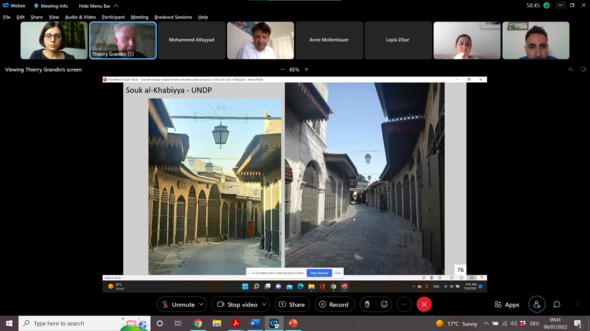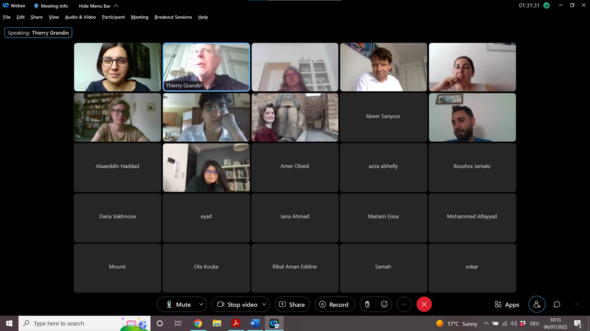Colloquia June-July 2022
The colloquium sessions are one of the 2022 pillar activities in the framework of BTU-AUB capacity-building project on post-conflict rehabilitation and reconstruction of historic cities. These sessions will take place online.
Dates:1 June - 8 June - 15 June - 6 July 2022
Time: 09:00 - 12:00 UTC+2
Registeration via: zarringhalam(at)b-tu.de


01 June 2022 (poster)
Teamwork Presentation and Discussion:
- Aleppo Al Judayda
- Aleppo Suq
- Raqqa
- Homs
08 June 2022 (poster)
Teamwork Presentation and Discussion:
- Aleppo Al Farafira
- Aleppo Citadel
- Bosra
Guest Input:
- Mapping Heritage the Politics of Memory by Ayham Dalal
15 June 2022 (poster)
Research Input:
- The Dilemma of the Post-War Architecture: Experiences from Central Europe by Mounir Affaki
- 3D Heritage as a Catalyst for Social Participation in Safeguarding Post-Conflict Cities by Sonia Ibrahim
6 July 2022 (poster)
Guest Input:
- Current Status of Post-Events Reconstruction Projects in the Old City of Aleppo by Thierry Grandin
- Challneges of Recovery and Reconstrucion – Post ISIS Ar Raqqa by Sozdar Abdo
- Recovery Process of Bosra by Ahed Diab
Kick-Off Event 14-15 March 2021
The online kick-off event of the project Rehabilitation and reconstruction of Historic Districts and Preservation of Architectural Heritage After Armed Conflicts took place on 14th and 15th of April 2021 with around 80 participants from BTU Cottbus, AUB, TU Berlin and Syrian partakers from various places.
The event had a dialogue-oriented format and aimed at sharing the scope and framework of the two-year project with the participants discussing the needs, expectations, gaps and ideas for further development of the proposed measures.
In order to stimulate and frame the conversations, three input lectures and one main discussion topic was put forth for each day. During the lectures, narratives from Aleppo and the ongoing activities there were shared, the notion of cultural significance which would shape the course of any kind of intervention was introduced, and experiences of post-conflict reconstructions from Beirut, Poland and Germany were presented and discussed. (see the proramme)
The group discussions on the urgent challenges as well as the required academic/scientific supports from abroad suggested the following training subjects to be tackled during the future project activities:
- Integrated and strategic planning
- Setting design/intervention regulations
- Critical analysis of case studies
- Implementation process
- Urban governance
- Partnership and local participation
Finally, the following eight case study areas were suggested by participants based on their interests, current researches or practical works. While there was a great interest for working on different areas of Aleppo, yet other smaller and non-World Heritage cities which have received less academic or practice-based attention so far were further proposed.
- Aleppo, Al-Judayda
- Aleppo, Al-Farafira
- Aleppo, Suq
- Aleppo, Citadel Periphery
- Al-Raqqa
- Bosra
- Homs
- Malula
